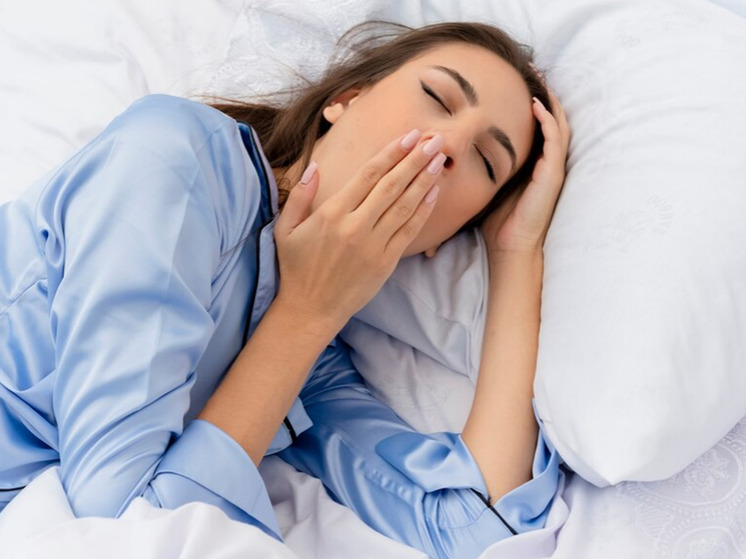«Your body is not used to this early hour, and it is difficult for you to fall asleep»
During the cold season, many of us feel that we do not have the amount of sleep that we usually get at other times. time of year, now is not enough. So, maybe people — like some animals — also need to hibernate? This is the question researchers are asking.

“If you're looking for more sleep in the winter, you're not alone,” says Dr. Raj Dasgupta, an assistant professor of clinical medicine at Huntington Memorial Hospital in Pasadena, Calif., citing a study that found at least a third of American adults reported that they sleep more in winter.
«Most adults' sleep needs are somewhere between seven and nine hours a night, and this remains the same no matter how cold or dark it is outside,» says Dr. Dasgupta. – However, in winter it often feels like you are sleeping more due to the fact that we lose an hour of daylight when we switch to standard time, which is associated with the earlier onset of darkness.
Compared to animals, it was believed that the influence of seasonality on human sleep is practically absent. But that was until recently, when a study published in February 2023 found the opposite: 188 patients who underwent sleep studies at St. Hedwig Hospital in Berlin slept about an hour longer in winter than in summer, suggesting that the study showed the opposite. The authors stated that these findings were not considered statistically significant. But in the winter, participants did get 30 minutes more time for rapid eye movement (REM) sleep.
REM sleep is the sweet spot of sleep cycles, characterized by more dreaming and faster heartbeats and breathing. at other stages, CNN explains. It's «an important stage of sleep that helps with memory, concentration, mood regulation and immune function,» notes Dasgupta.
The desire or need to sleep more in winter may be related to fluctuations in light levels throughout the year, or changes in behavior and mental health that may result. Here's what experts say you need to know about the science and whether you should make any adjustments.
«Our bodies take cues from the sun when it comes to our circadian rhythm, meaning that when it's light outside, we tend to be active, but when the sun goes down, you may feel tired,» Dr. Dasgupta points out. – Decreasing sunlight causes an increase in melatonin, a hormone produced in the body that regulates sleep-wake cycles.
Given the earlier production of melatonin in the winter, «it would be natural to assume that a healthy person would also need more sleep in the winter,» said Dr. Carlear Weiss, an assistant research professor at the University at Buffalo's Center for Nursing Research.
And light has an effect. not only on the quantity, but also on the quality of sleep. “REM sleep is greatly affected by light and darkness, so when we have less light during the winter months, the body essentially tries to compensate by producing more REM sleep,” says Dr. Joshua Thal, a clinical psychologist in New York City. specializing in sleep problems.
According to experts, the need for more sleep in winter may also be caused by something called social jet lag, which means those fun late nights you've been having all summer could be the reason you have trouble falling asleep in winter or you feel like your body is overtired due to more sleep.
“Your body is not used to such an early hour, and you find it difficult to fall asleep, says Dr. Thal. – Your clock is slow.
Other behavioral reasons include «holiday stress, cravings for a wide range of foods and treats, drinking alcohol and skipping exercise,» Dasgupta said.
People still don't need to hibernate, Dr. Weiss says. and we cannot afford it due to our social and professional obligations. “But we can make adjustments to work better and relax better in the winter,” the expert said.
Because of how winter's changing light can affect our circadian rhythms, getting a little more sleep can help you be more mindful of schedules that require you to be outside after dark, Tal says. Alternatively, it would also be useful to move the start time of work or school to a later time, since having to go out only during the day would help people feel more alert.
“To help our bodies make the transition from sleep to wakefulness, it is important to have light in the mornings during the winter months,” Weiss said. – It's also important to maintain a consistent bedtime and wake-up time.
If your schedule doesn't allow for exposure to natural light before work, you can try light therapy, the main treatment for seasonal affective disorder, which can be another reason to sleep more in winter. The treatment involves exposing yourself to a light box with a minimum brightness of 10,000 lux for at least 30 minutes. (Lux is a measurement of light level.)
“It's important to make sure your sleep environment is conducive to sleep, says Dr. Jennifer Martin, professor of medicine at the David Geffen School of Medicine at UCLA and past president of the American Academy of Sleep Medicine. – And reach out to either a trusted healthcare professional or a mental health professional directly if you notice you're struggling with seasonal depression.


